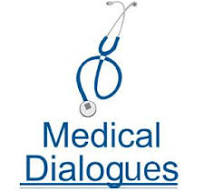
Editor's Note A Phase III clinical trial comparing transcatheter aortic valve replacement (TAVR) with traditional open-heart surgery found no significant differences in key health outcomes 7 years after treatment, Cedars-Sinai October 27 reports. The international PARTNER 3 trial, led by Raj Makkar, MD, and published in The New England Journal…

Editor's Note Minimally invasive surgery can extend beyond valve replacement to complex aortic procedures without sacrificing safety or long-term outcomes. According to an August 21 news update from the University of Miami Miller School of Medicine, a new study of 796 patients found adding ascending aortic or hemiarch replacement to…

Editor's Note Air quality in cardiac ORs may be a silent driver of surgical site infections (SSIs), with airborne contamination linked to significantly elevated infection risk and mortality—especially when ventilation is suboptimal. A newly published study covered by Medical Dialogues May 19 reveals that one-third of bacteria in cardiac procedures…

Editor's Note Cardiothoracic surgeons at Emory University Hospital have conducted the first US implantation of the BrioVAD System, a new ventricular assist device (VAD) from BrioHealth Solutions, Cardiovascular Business News reported November 25. According to the article, the BrioVAD System features a magnetically suspended, hemocompatible pump designed to minimize adverse…

Editor's Note In a series of interviews with STAT, 11 cardiologists and other clinicians, including the FDA commissioner, said a crisis in primary care is dragging back progress in the nation’s cardiovascular health. Published October 15, the article begins with commentary on a stark warning from the American Heart Association…

Editor's Note A September 2024 study, published in the Journal of the American College of Cardiology, found that subclinical atherosclerosis progression in asymptomatic individuals is strongly linked to increased risk of death from any cause, CathLab Digest September 30 reports. The study, led by Mount Sinai Fuster Heart Hospital researchers,…

Editor's Note Research shows atrial fibrillation (Afib), a heart rhythm disorder, affects 10.5 million US adults—three times more than previously believed, HealthDay News reported September 12. The article focuses on a study from the University of California, San Francisco (UCSF), published in the Journal of the American College of Cardiology.…

Editor's Note Although data suggest transcatheter edge-to-edge repair (TEER) using the MitraClip device may offer similar outcomes to mitral valve surgery in patients with heart failure and functional mitral regurgitation (FMR), experts have criticized the research, TCT MD reported September 1. Presented at the recent European Society of Cardiology (ESC)…

Editor's Note Contrary to previous findings, less-invasive percutaneous intervention combining fractional flow reserve (FFR)-guided percutaneous coronary intervention (PCI) with transcatheter aortic valve replacement (TAVR) could be a viable alternative to surgery for patients with severe aortic stenosis (AS) and concomitant obstructive coronary artery disease (CAD). That’s according to the results…

Editor's Note Nine out of 10 American adults have Cardiovascular, kidney, and metabolic syndrome (CKM)—interrelated factors that progress to heart disease—and almost 10% already have heart disease, according to a report published in JAMA by Brigham and Women’s Hospital and Harvard Medical School in Boston. HealthDay news reported on the…